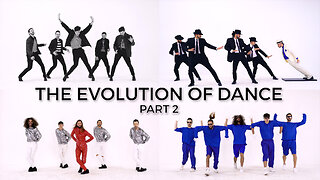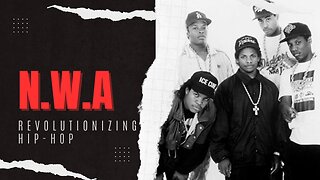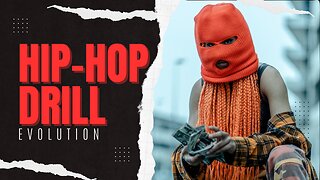The Evolution of Hip-Hop
Welcome to our video journey through the captivating evolution of hip-hop. From its humble beginnings in the Bronx in the 1970s to becoming a global cultural phenomenon, this musical genre has left an indelible mark on society. Join us as we delve into the key eras, iconic artists, diverse musical styles, and profound social influences that have shaped hip-hop throughout the years.
Our story begins in the South Bronx, New York City, during the late 1970s. It was a time of economic downturn, poverty, and social unrest. In this fertile ground, a new art form was born.
The early days of hip-hop were all about expression. Young artists utilized graffiti, breakdancing, and DJing to create a vibrant and positive culture amid the challenges of their surroundings.
Key figures emerged, like DJ Kool Herc, who is often credited as one of the pioneers of hip-hop. His innovative turntablism techniques laid the foundation for the DJ culture we know today. Grandmaster Flash's mastery of mixing and scratching further propelled the movement.
As the 1980s dawned, a new element emerged - MCing, or rapping. Emcees like Melle Mel and Afrika Bambaataa used their lyrics to speak out about the challenges faced by their communities.
The 1980s witnessed hip-hop's first taste of commercial success, with groups like Run-DMC breaking into the mainstream. Their fusion of rock and rap opened the doors for hip-hop to cross cultural boundaries.
The late 1980s and early 1990s were the Golden Era of hip-hop, characterized by its emphasis on lyricism and social consciousness. Artists like Public Enemy and N.W.A fearlessly addressed systemic issues, sparking important conversations about race and inequality.
As we move into the mid-1990s, hip-hop saw an explosion of talent from the East Coast to the West Coast. Iconic figures like Tupac Shakur and The Notorious B.I.G. became symbols of the East-West rivalry, which unfortunately culminated in tragedy.
The turn of the millennium brought hip-hop into the mainstream spotlight. The 2000s witnessed an era of commercial success, with artists like Jay-Z, Eminem, and Missy Elliott dominating the charts with their unique styles.
With the rise of social media and technology, hip-hop's reach expanded globally. Artists from all corners of the world embraced hip-hop as a means of expression, blending their unique cultural backgrounds with the genre.
Today, hip-hop is a cultural powerhouse, influencing music, fashion, and art worldwide. Artists like Kendrick Lamar, Cardi B, and J. Cole continue to push the boundaries, addressing contemporary issues and driving social change.
The journey of hip-hop from the streets of the Bronx to its global dominance is a testament to its resilience and power. It remains a platform for people to tell their stories, share their truths, and inspire change. As we continue into the future, hip-hop will undoubtedly keep evolving, shaping the world and touching the lives of millions.
Thank you for joining us on this captivating journey through the evolution of hip-hop. Be sure to like, subscribe, and share this video to keep the hip-hop conversation going.
-
 8:47
8:47
Big Herc 916
4 years agoA Hip Hop Evolution
1 -
 5:54
5:54
SpaceCowboy TV
1 year agoThe Evolution of Dance - 1950 to 2019
125 -
 7:43
7:43
RicardoWalker
10 months ago $4.96 earnedThe Evolution of Dance: 1950 to 2022
532K14 -
 47:42
47:42
voicesofvic
4 months agoThe Evolution of Rap! | VoV Ep. 23
15 -
 5:37
5:37
RicardoWalker
2 years ago $12.30 earnedThe Evolution of Dance: K-pop Edition
20.6K149 -
 5:04
5:04
SpaceCowboy TV
1 year agoHip Hop the Origins
120 -
 2:31
2:31
RandomAnswersAboutHipHop
9 months agoN.W.A Revolutionizing Hip-Hop
28 -
 2:22
2:22
RandomAnswersAboutHipHop
9 months agoHip-Hop Drill Evolution
20 -
 5:13
5:13
Vansilk
6 months agoRUSSELL SIMMONS SAYS HIP-HOP IS NOT DEAD, ‘IT IS ALWAYS EVOLVING’
36 -
 0:41
0:41
DomainMarketer
1 year agoOld School Hip Hop
2